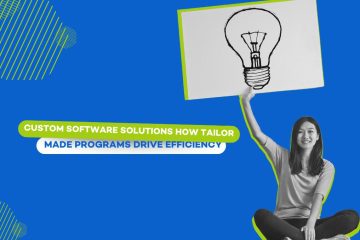Payroll Processing System is the management and distribution of employees’ compensations in an organization, including total salary or wage, bonuses, and incentives earned in a particular pay cycle. It involves a wide range of activities, such as calculating pension, provident fund, loss of pay due to leaves, filing income taxes, and delivering the payment. The employee payroll system is a key duty of business owners and is typically carried out by the human resources team or the company’s account department. Based on the size of their business and the employees working, companies can either outsource the payroll services to a third-party HR agency or employ an in-house HR team to complete the responsibilities.
Is There a Need for a Payroll Processing System?
The process can be accomplished manually through spreadsheets. But any HR professional will tell you that there’s more to payroll processing than calculating salaries and signing cheques. Payroll processing system software can be used to automate the entire process – from onboarding an employee on the company’s payroll to ensuring the final settlement when the employee resigns and a series of repetitive tasks in between.
When done manually, through spreadsheets, payroll processing becomes complex, tedious, time-consuming, and prone to committing errors. A dedicated payroll processing system implemented by a reputed software development company in Delhi can ensure accuracy and efficiency in calculating compensations, reduce delays in payment distribution, and streamline repetitive tasks.
In addition, it can help an organization comply with the general HR policies ideally as certain aspects of payroll processing are regulated by the government, such as The Minimum Wages Act, EPF, PT, and ESI Acts in India and IRS in the USA.
Advantages and Disadvantages of Payroll Processing Systems
Payroll processing software is an affordable option for small to medium-sized businesses with a limited budget. It not only offers greater flexibility and control over the process but also helps reduce overhead costs.
While in-house or outsourced payroll services to experts offer peace of mind and ensure compliance, an integrated approach that combines a team and a payroll system can provide mid to large-sized businesses with comprehensive solutions with speedy and spotless results.
Advantages of Payroll Processing System
1. Maintains Accuracy and Compliance
Payroll software solutions can accurately calculate wages according to HR policies and tax regulations, ensuring timely payment of workers. You wouldn’t have to worry about infringing state laws and regulations or committing costly errors in salary calculation.
2. Saves Time and Improves Efficiency 10X More
As we established earlier, payroll processing is more than calculating wages and distributing them. It involves complex calculations and repetitive tasks, such as benefit deductions, insurance, loans, wage garnishments, tax withholdings, and variable allowances.
Besides this, the HR and accounts department must stay updated with the latest tax and wage laws to avoid penalties and fines. A payroll processing system allows business owners to accomplish repetitive tasks, saving time and effort significantly.
In addition, it benefits employees too. The payroll processing system can be integrated with the attendance management system. So, whenever an employee marks attendance, the data is automatically collected, and the wage is calculated without manual intervention. This reduces the possibility of errors and conserves time spent on calculating leaves and extra work hours.
This ensures all employees receive fair and transparent compensation for their hard work and effort.
3. Saves Costs when Integrated with an Accounting System
Payroll processing and accounting go hand in hand. When both are integrated, companies can improve their financial processes, track day-to-day costs, and reduce hefty penalties. This is especially beneficial for businesses that work with contractors, freelancers, and daily wage collectors.
Automated data transfer between payroll processing software and accounting systems lowers risks of errors and improves financial management.
Overhead costs can also be reduced significantly. In other words, the larger the organization, the higher the number of staff on the company’s payroll. Manual payroll processing or outsourcing may not always be the most cost-effective solution. Setting up an in-house payroll team requires training staff and investing in space, hardware, and equipment. However, despite the initial setup costs, an automated payroll processing system can reduce long-term expenses by decreasing the need for a large payroll staff.
4. Offers Data Security
One of the benefits of using a robust payroll processing system developed by a reputed and certified software development company in Delhi is that it offers data protection of susceptible financial information of employees like PAN details, bank account information, security numbers, etc., and prevents data breaches and unwanted access.
Modern payroll processing system allows you to enable data encryption, implement a firewall, and enable two-factor authentication, providing comprehensive protection and security.
5. Access to Historical Data for Analytics and Reporting
Having a payroll processing system in place offers permanent access to historical data in real time. Do you want to know how much you spent on salary five years ago? Pull out the details at the click of a button.
Real-time data and analytics allow you to analyze trends and patterns, such as which incentive scheme was most in demand the previous year, and make informative and wise decisions for future improvements.
Disadvantages of the Payroll Processing System
1. Initial High Set Up Cost
The cost of development and implementation of a custom payroll processing system can be high initially. With its ready-to-deploy, partially customizable, cloud-based payroll processing system software, DI Infotech can considerably reduce the initial setup cost for small to medium-sized businesses.
2. May Face Technical Issues
Technology and software often come with their unpredictabilities. Programs might suddenly fail to work as expected, resulting in delayed payments to employees or errors in tax calculations.
The payroll process can be particularly vulnerable to disruptions caused by bugs and software downtime, such as data loss. Addressing these issues typically needs IT support, adding extra time and costs.
3. May be Difficult to Learn, Maintain and Upgrade
Payroll processing system implementation requires devoted learning, effort, and time to become operational. Your HR personnel may need training in order to learn it. In addition, the ongoing charges for software upgrades, maintenance, and technical support may seem high for some business owners.
DIInfotech’s Payroll Processing System runs on a cloud-based server. As one of Delhi’s top software development companies, we take care of software maintenance, offer 24/7 technical support, provide training, and ensure timely system upgrades at no additional cost so you can peacefully focus on running your business.
Connecting with the top software development company in Delhi for payroll processing software can be a strategic and profitable investment.



0 Comments